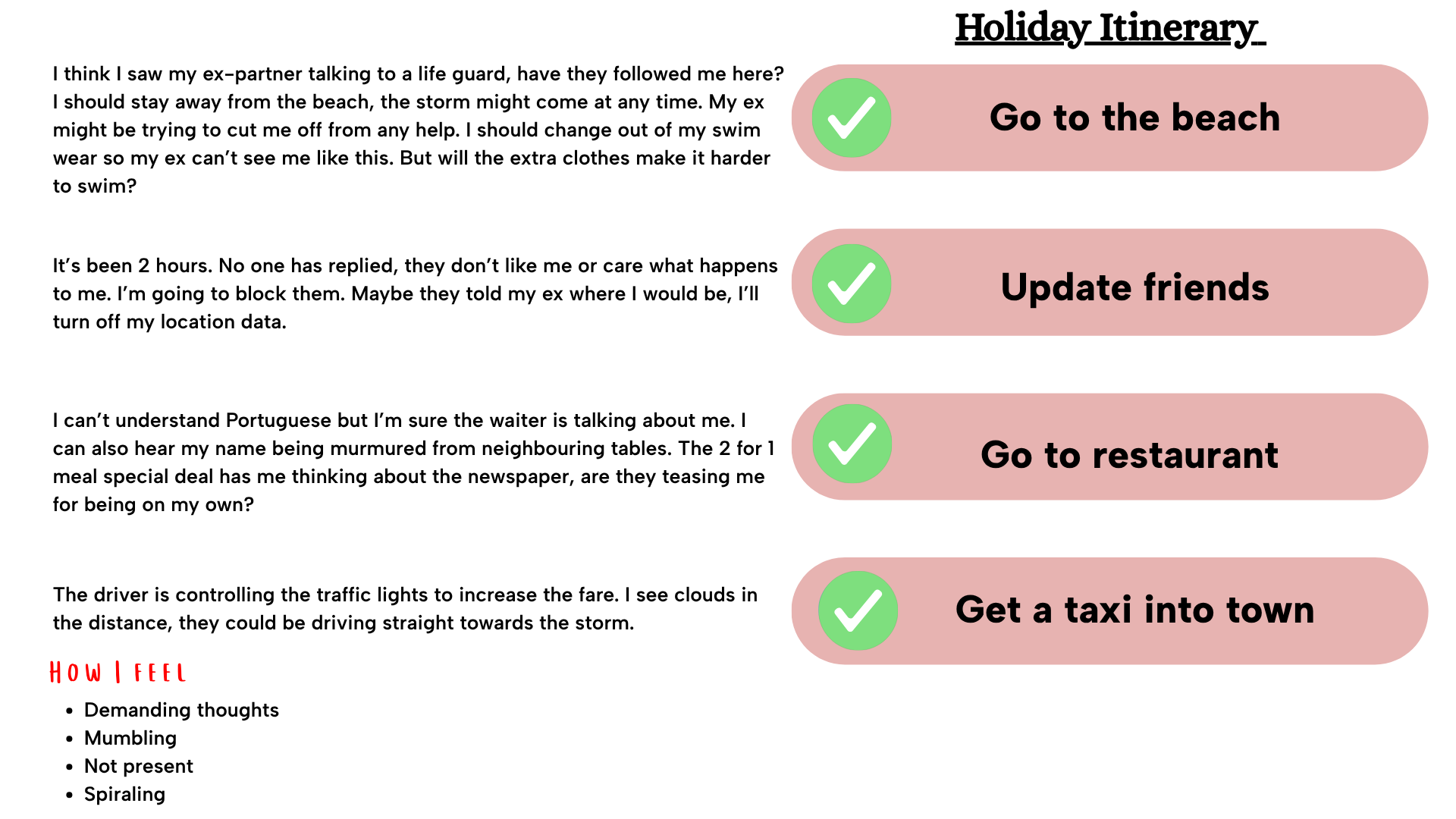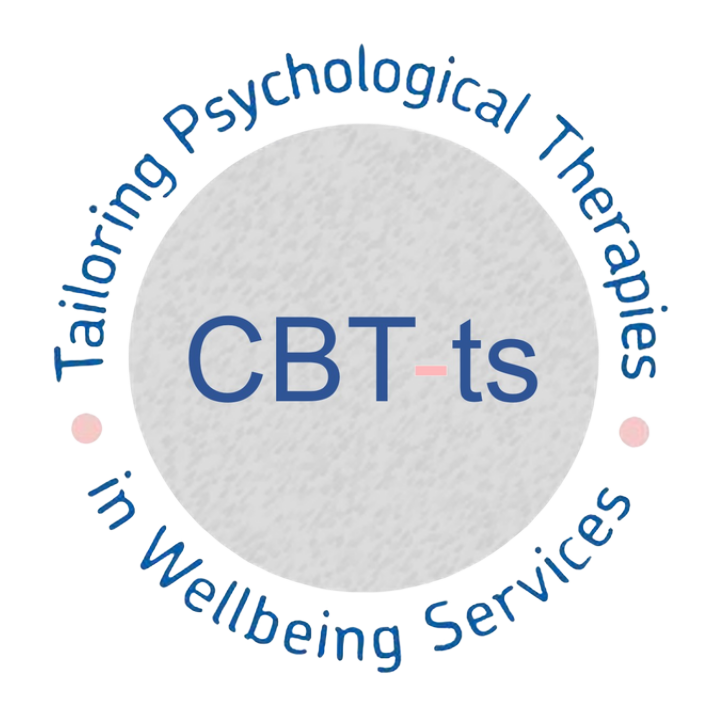What are Psychotic experiences?
Explainer Activities
We invite you to engage with 3 activities which help explore ‘What are psychotic experiences?’. Use the slider to reveal examples of how psychotic experiences may arise from intensifying anxiety and in relation to day-to-day occurrences and concerns. These psychotic experiences may include unusual thoughts, suspiciousness, visions and voices (transient murmurs/disturbances). The annotations from these activities give insight into these thoughts and feelings
Setting the scene: Alice struggles with her anxiety, on some days when her anxiety is intense, she also has psychotic experiences. She has a holiday booked for next week. Reports of bad weather in other parts of the country has intensified her anxiety. It is important to note, that her specific holiday destination remains unaffected.
Activity one – Alice reading a newspaper, which mentions the storm
Activity two – Annotated To-do list, Alice is preparing for her holiday
Activity three – Alice is on holiday, Annotated Itinerary
Pyschotic experiences are varied
It is important to note people have a diversity of experiences and respond to things differently. This is a curated example informed by people with lived experience to help readers gain an understanding of psychotic experiences. However, this is just a snapshot at a point in time and experiences are individual.
Psychotic experiences and the focus of TYPPEX
Psychotic experiences are common for those with mental health issues such as anxiety and depression. The frequency and severity of these experiences may rise when anxiety and/or depression symptoms increase. Psychotic experiences are also present alongside other mental health issues, such as psychosis, these experiences tend to be more severe and persistent and may require specialist care (secondary care). The TYPPEX study focuses on those being treated in primary care (GP services and NHS Talking therapies) for anxiety and depression.
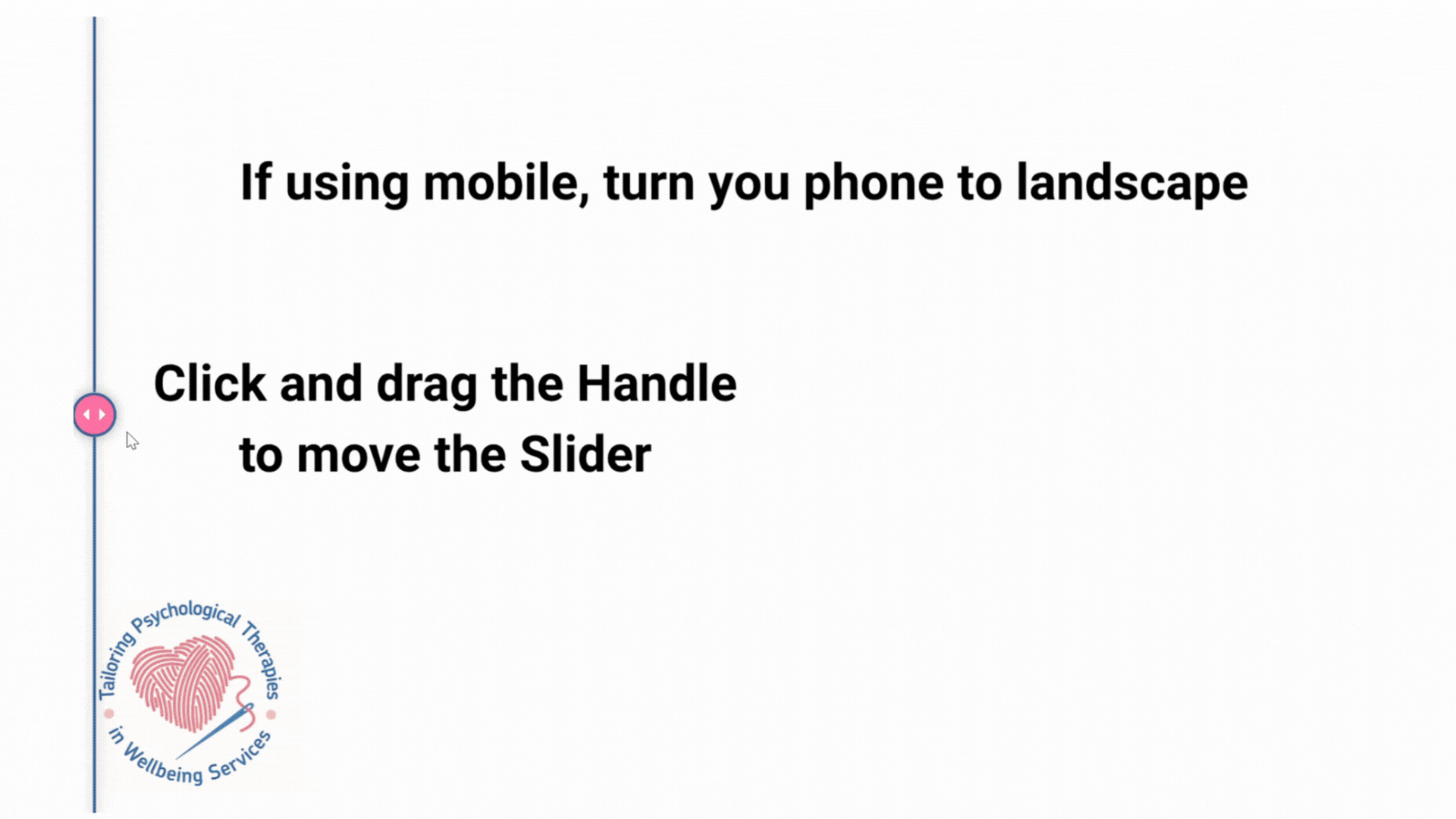
1) Alice reading a newspaper, which mentions the storm
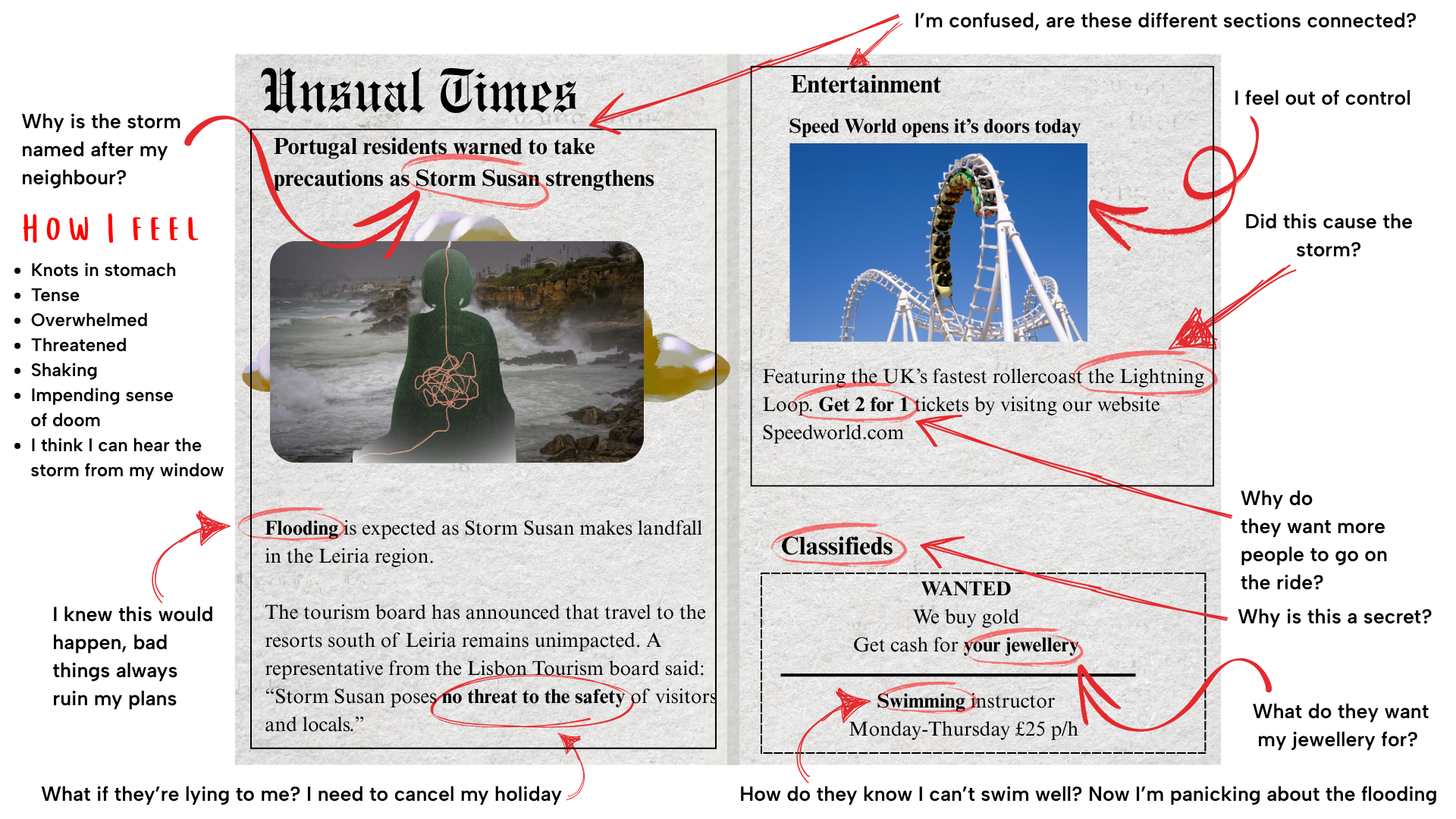
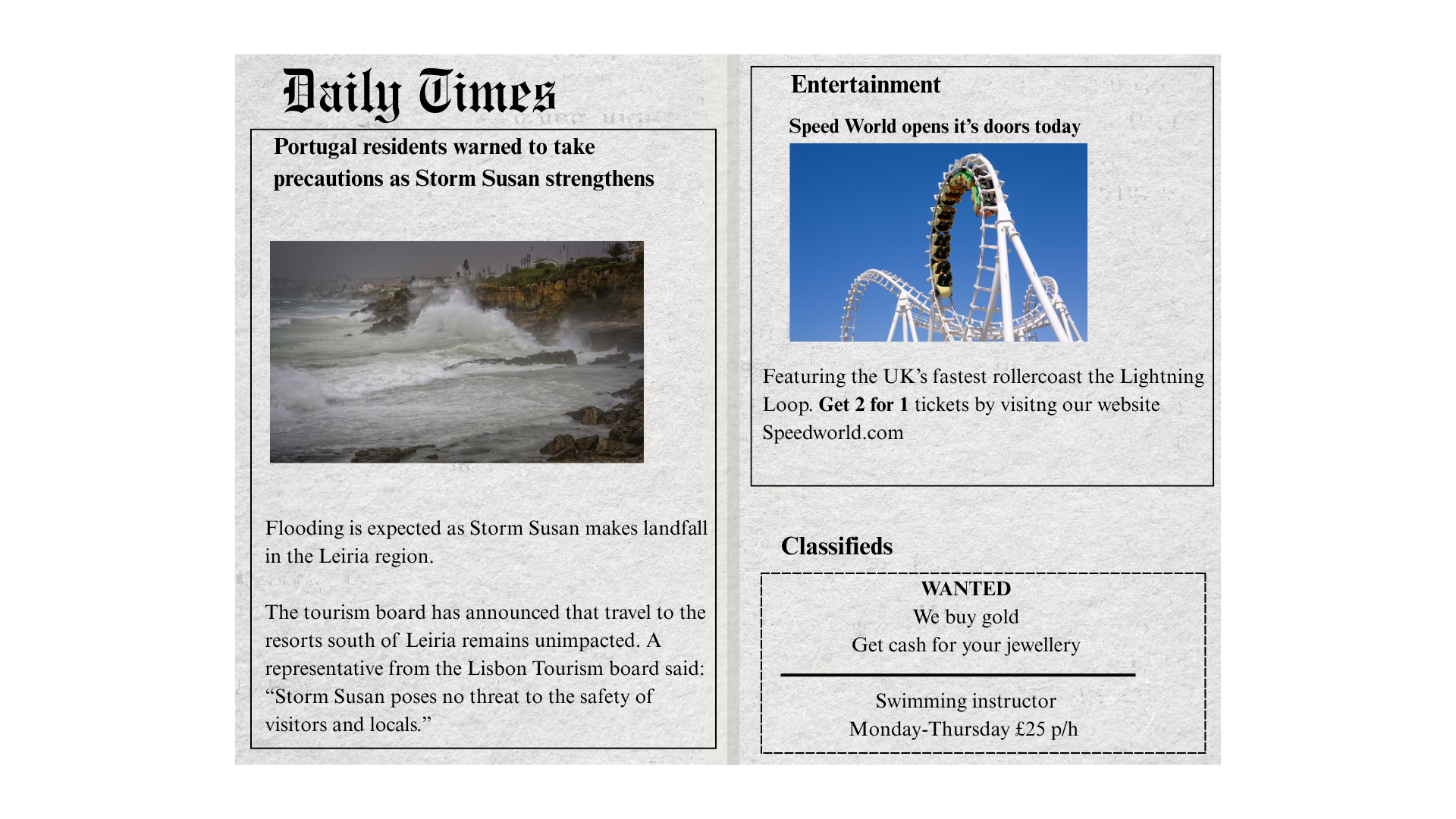
2) Annotated To-do list, Alice is preparing for her holiday
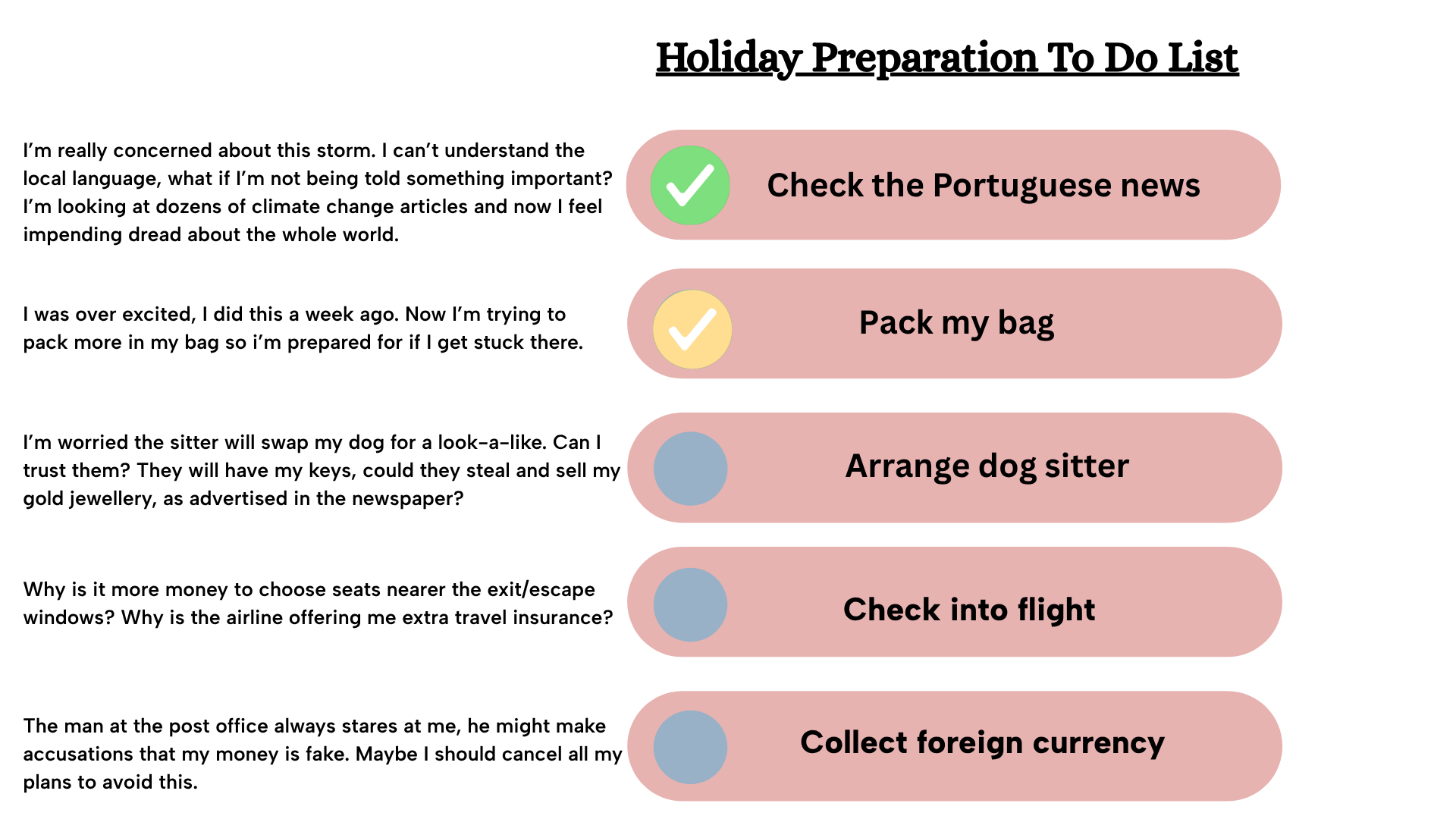
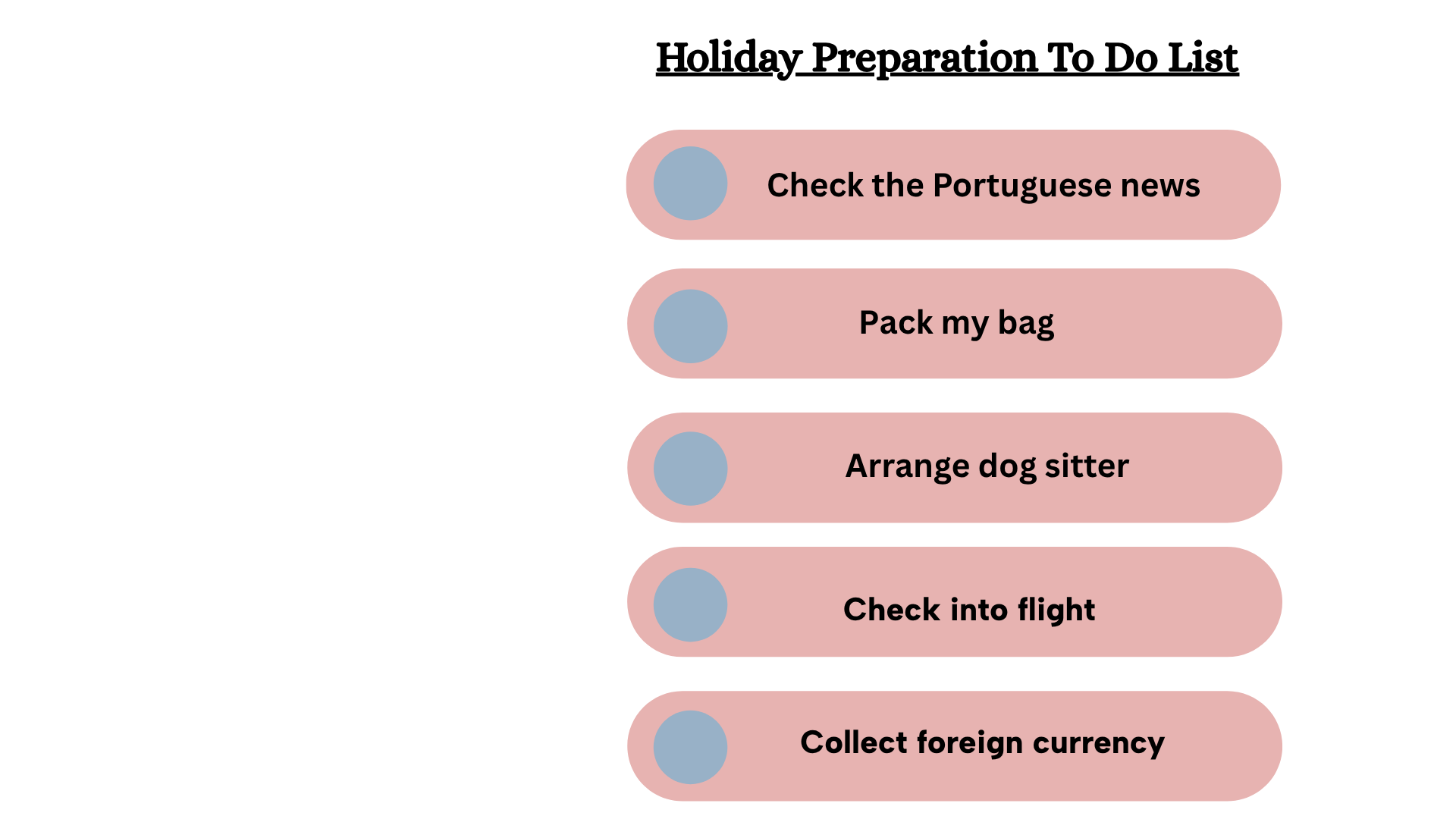
3) Alice is on holiday, Annotated Itinerary
